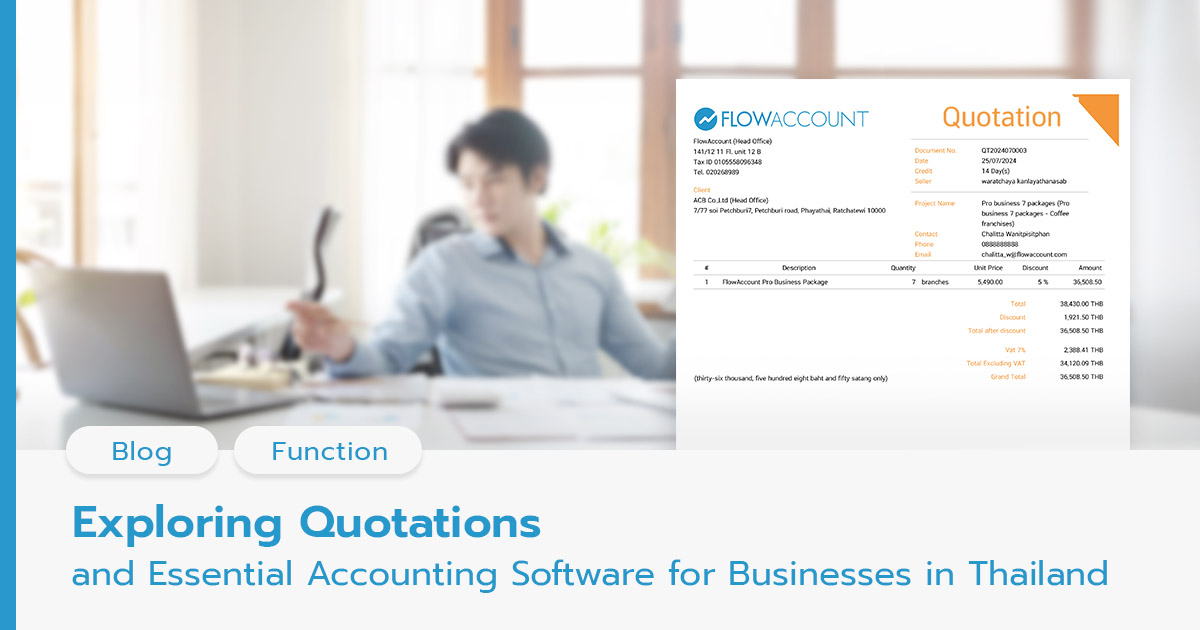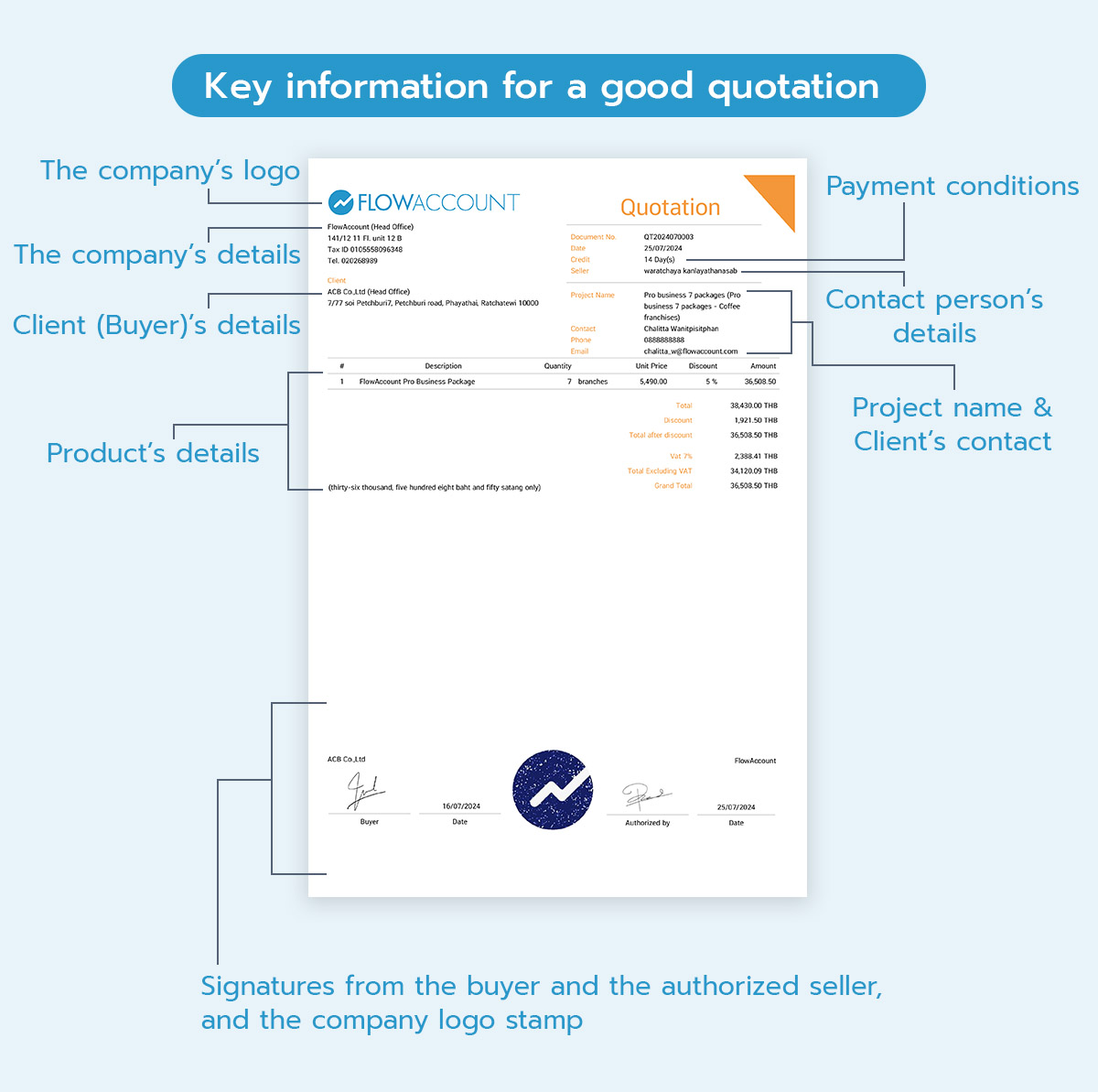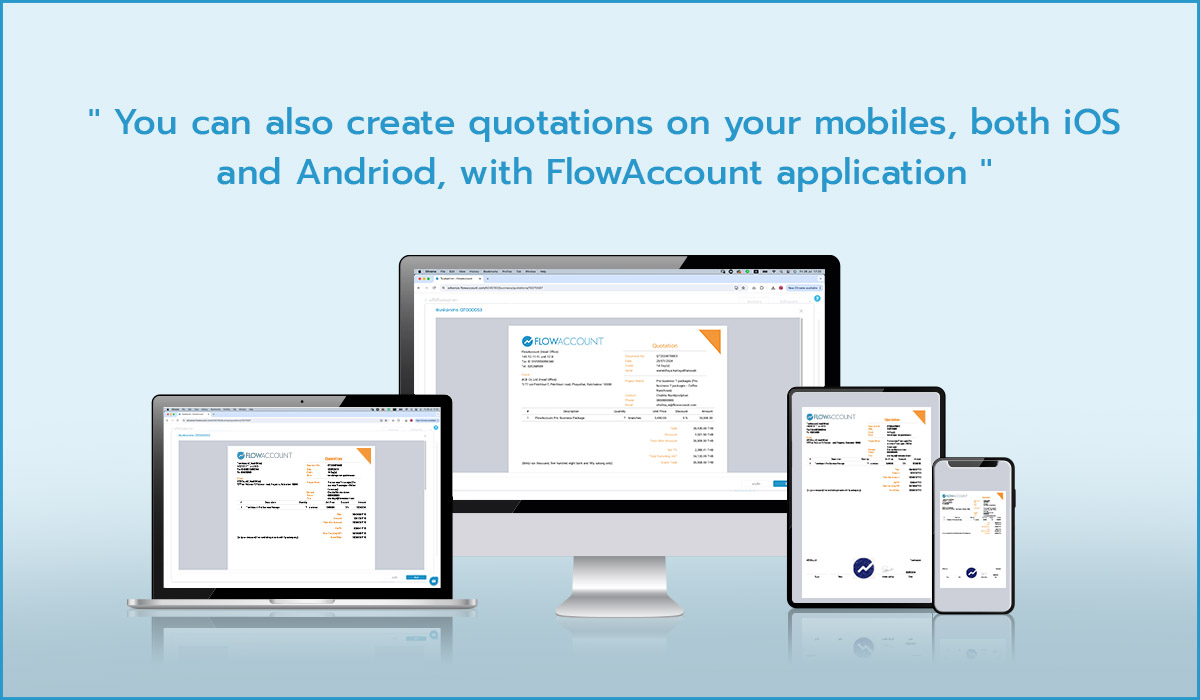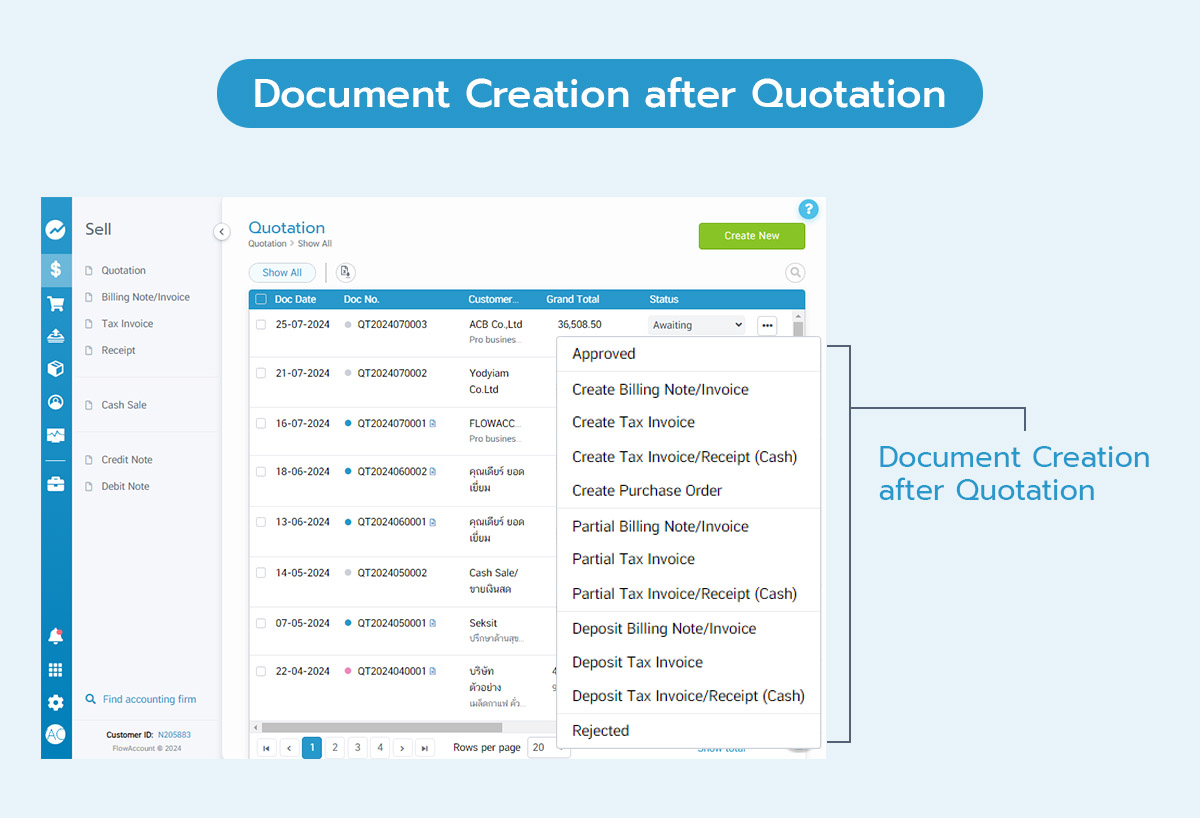
| A quotation is a key document that business owners give to clients to detail the price of products or services and any associated terms before they make a purchase decision. Want to dive deeper? Check out the full article. |
Quotation is a document that business owners must issue for clients (buyers) to consider the price of the offered products or services, including any related condition, before deciding to purchase.
How Should We Quote in Thailand?
Before creating a quotation, a detailed discussion with clients should be made on which products/services are in their interests so that we can ensure that we include relevant details on the products/services description, conditions on preparation or delivery, credit terms, and other important notes that the client should be acknowledged.
However, one thing to remember is that the quotation is not yet an agreement, it should not be too detailed and takes forever to read. It should be concise and contain enough information on one page so the clients can sign on the quotation right away.
The following is the key information that a good quotation should have:
- The company’s logo (Tips: the logo should be visible and represents professionalism)
- The company’s details including the company’s name, address, tax identification number, and branch of both the seller or service provider and the buyer
- Contact person’s details including name, email, and mobile number
- Project name (Tips: project name can be used for reference with clients)
- Product’s details including quantity, unit price, discount, and tax
- In Thailand, there are two types of taxes to be aware of Value Added Tax (VAT) and Withholding Income Tax. It is essential to understand these taxes before issuing a quotation.
- Payment Conditions (For example, refund policies, credit terms, and payment methods)
- Signatures from the buyer and the authorized seller, and the company logo stamp

Note that some products or services might require you to be more specific on the scope of the offer stated in the quotation. This is to prevent referencing new projects back to the old quotation that the terms and conditions might no longer be applicable.
If you frequently create quotations, the document number should be in sequential order so that you can reference back to the quotation when you need to issue an invoice/billing or a tax invoice/receipt.
เลือกอ่านได้เลย!
ToggleWhat is the Importance of Quotation?
- Before the clients (buyers) decide to purchase a product or service, they normally request a quotation from at least 3 brands to compare the price and quality of the product or service. Therefore, a good quotation will increase the chance of closing the deal.
- Quotation can be used for reference regarding product information, payment conditions, contact person details, promotions, and most importantly, the price. Once billing, these details can be crosschecked to the quotation.
- Quotation will increase the company’s credibility, especially businesses with high-value products. It lets the clients know who they are doing their business with, how it will be done, and who to contact.
How to create a quotation with FlowAccount?
FlowAccount offers templates for quotation. You are only required to fill in customer information, product or service details, and price. This helps reduce document creation time in Excel.
Visit https://flowaccount.com/tutorials to explore how to create a quotation with FlowAccount.
For those who prefer to work on smartphones, you can also create quotations on your mobiles, both iOS and Andriod, with FlowAccount application.

Document Creation after Quotation
When the quotation is signed and the agreement is made, more documents follow, including billing/invoice or tax invoice/receipt. FlowAccount makes it easy by applying the information on the quotation to billing/invoice or tax invoice/receipt so you don’t have to fill in the same information again.

After reading this article up to this point, you’ll see that creating a quotation is essentially a preliminary agreement between the seller and the buyer. If you do business in Thailand, issuing a quotation is not as difficult as it might seem. Consider using FlowAccount to assist with your business needs.
About Author

Certified Public Accountant (CPA) Thailand with experience as an external auditor for listed companies who aspires to make accounting easy and accessible for everyone.
Apply to be a writer for FlowAccount here.

